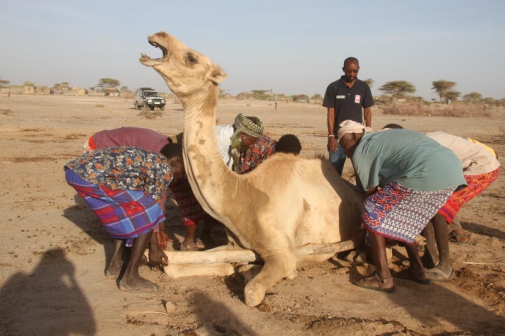×
The Standard e-Paper
Kenya’s Boldest Voice

For Tura Elema from Horri Guda near North Horr trading centre, the ship of the desert may not reach its destination.
The 53-year-old herdsman was until last Sunday a proud owner of 21 camels, but seven have succumbed to drought in a span of six days. The last death occurred on Thursday as locals watched. The locals describe this as the most devastating drought in decades.